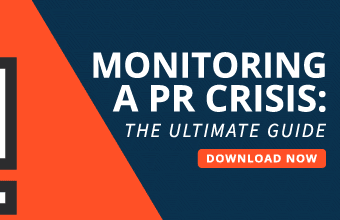Crisis strikes in all shapes and forms, and often in unanticipated ways. It doesn’t always have to be external forces that tear your company’s reputation down—communications pros need to remember that sometimes the rotting happens from the inside. Just ask Nike.
As with so many other brands and businesses in the #MeToo era, old-school behaviors that were once reluctantly accepted are finally coming under intense scrutiny, bringing down some of the world’s most powerful men and spurring revolutionary attitudes and behaviors in every industry.
With this movement fully underway, Nike’s decades-long “boys club” mentality finally pushed many women on the staff to the brink. After years of reportedly tolerating inappropriate comments, aggressive behavior, misogynistic workplace standards and an overtly sexist culture, a group of women in the athletic brand’s Beaverton, Ore. headquarters started their own revolution—which has since upended the whole company and left a growing list of disgraced executives in its wake, according to The New York Times, which broke the story.
So far, at least a half a dozen male execs have departed or announced plans to leave, including brand president Trevor Edwards, and his right-hand man Jamye Martin, along with the company’s head of diversity and inclusion, a footwear VP and a basketball division senior director.
Another important development in this story—and another important reminder for PR and reputation gatekeepers—is that #MeToo is not just about women
Don’t think the females in your workplace are the only ones who want change. Their male counterparts are joining the movement as well, often leading the charge for the cultural reprogramming this revolution necessitates.
Trying to quell the swirling anger, company CEO Mark Parker Is assuring employees that action is being taken and that all necessary dismissals will soon be completed. He also smartly addressed the more pertinent issue—that he and other brand leaders failed to see the signs of discontent among their employees, and he issued an apology for that before a group gathering on the HQ campus and via video to other remote staff.
“I apologize to the people on our team who were excluded, and I apologize if some of those same people felt they had no one to turn to,” he said in his apology speech. “I want everyone at Nike to know their voices do matter and your bravery is making us better.“ Sure, it’s saying the right things—but Parker needs to prove that it’s not just lip service.
Yet another important takeaway from Nike’s experience is the power of the employee survey
Despite reports of numerous complaints to HR, it was through an anonymous survey by this group of female employees that expressions of uncomfortable and unfair behavior in the brand’s offices were allegedly first revealed to Parker. Along with the sexism complaints, the survey also revealed that women felt they were unable to grow within the company’s ranks due to that toxic culture.
Is your company or client’s brand possibly guilty of a toxic workplace culture? It’s now clear that these conditions are no longer being tolerated—neither by women nor men—and your employees have no problem tearing your brand’s reputation down to change it. Launch an anonymous employee survey of your own today to get an understanding of what’s really happening—and be ready to take action.
ICYMI, time’s up, folks.









